
A new study published in Geoderma demonstrates that combining soil spectroscopy with radar-derived vegetation indices and environmental data significantly improves the accuracy of soil organic carbon predictions in Brazil’s semi-arid regions.

Will Wetzel is a Senior Editor for Spectroscopy magazine. He specializes in creating engaging, high-value content for diverse audiences. His role involves driving digital growth through KPI assessments, social media strategies, and innovative content development.
Wetzel is also a sports writer and commentator, serving as a freelance writer for several sports websites, including FanSided. He currently serves as the host, producer, and creator of “The Inside Fastball,” a LinkedIn newsletter that discusses topical issues in Major League Baseball (MLB). Outside of work, Wetzel volunteers with the Nashville Humane Association and Habitat for Humanity. His stated goal is to help build one house with Habitat for Humanity in every U.S. state.

A new study published in Geoderma demonstrates that combining soil spectroscopy with radar-derived vegetation indices and environmental data significantly improves the accuracy of soil organic carbon predictions in Brazil’s semi-arid regions.
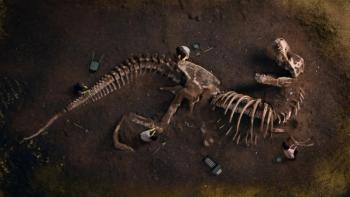
A new study published in the Journal of South American Earth Sciences reveals how microbial activity, low pH conditions, and sediment chemistry in Brazil’s São Carlos Shale uniquely preserved diverse Upper Cretaceous fossils, offering fresh insights into the paleoenvironment of the Bauru Basin.
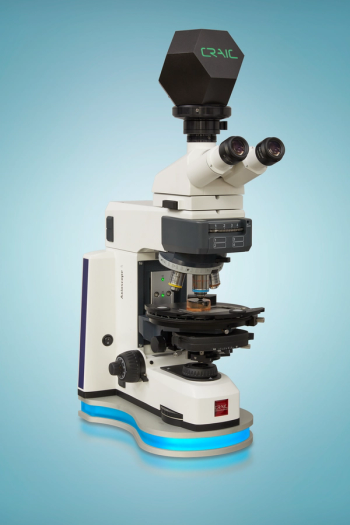
In a press release, CRAIC Technologies announced the launch of its novel maceral identification solution that is designed to improve coal analysis. This new system contains high-speed imaging, servo-driven scanning, and intelligent software that work together to generate more accurate maceral analysis.

A recent study presented a dual-method approach combining confocal micro-Raman spectroscopy and Nile Red-assisted fluorescence microscopy to enhance the accuracy and throughput of microplastics detection in environmental samples.

The Society for Applied Spectroscopy (SAS) recently announced the 2025 Fellows Award recipients. Here's a rundown of who was selected and their contributions to the field of spectroscopy.

Machine learning models and spectral analysis provide a scalable alternative to conventional trace metal detection.

A new review article highlights how researchers in Moscow are integrating machine learning with optical spectroscopy techniques to enhance real-time diagnosis and surgical precision in central nervous system tumor treatment.

A recent study showcases a cost-effective, ecofriendly UV spectrophotometric method enhanced with dimension reduction algorithms to accurately quantify veterinary drugs dexamethasone and prednisolone, offering a sustainable alternative to traditional analysis techniques.
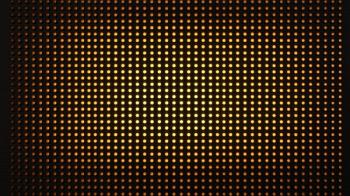
A recent study reports high-purity blue emission and thermal stability in novel lanthanum (III) complex synthesized via low-energy precipitation method.

Researchers develop robust diagnostic method using functional near-infrared (fNIR) spectroscopy and deep neural networks with high accuracy.

Top articles published this week include a compilation of some of the top KOL interviews for the month of June, an announcement from DialAct Corporation about a new product line of Raman spectrometers, and an inside look at Raman spectroscopy in biomedicine.

Researchers from Cranfield University and partners from industry demonstrated the feasibility of using advanced, non-destructive imaging techniques to analyze and standardize organo-mineral fertilizers.

A new study published in Minerals reveals that red coral artifacts unearthed in Xinjiang’s Shengjindian cemetery originated from the western Mediterranean, highlighting early Silk Road trade and long-distance cultural exchange during the Han Dynasty.

Earlier this month, ABB and Hydrosat announced an expansion of their partnership by launching the second infrared (IR) camera that will go aboard Hydrosat’s VanZyl-2 satellite, which is scheduled for summer 2025.
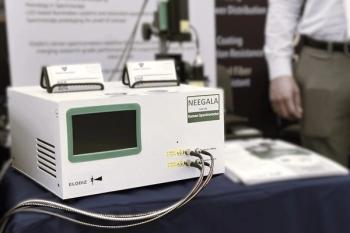

A new study published in the journal Food Chemistry by lead authors Qian Zhao and Jun Huang from Zhejiang University of Science and Technology unveil a new data-driven framework for predicting resistant starch content in rice
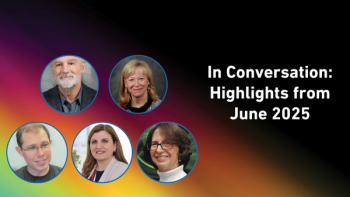
We sat down with top researchers in analytical spectroscopy to discuss their work, insights, and the paths that brought them here.

A recent study developed new photoacoustic probes to better visualize oxidative stress during acute liver injury.
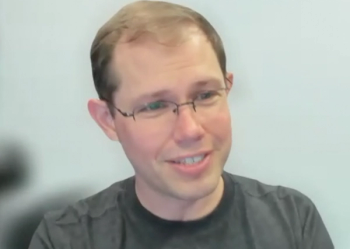
In this edition of “Inside the Laboratory,” Brett McGuire of the Massachusetts Institute of Technology (MIT) discusses his laboratory’s work in astrochemistry.

In the lead-up to the International Symposium on Molecular Spectroscopy conference, Brett McGuire of the Massachusetts Institute of Technology sat down with Spectroscopy to preview the ISMS conference.

Researchers at Wittenborg University of Applied Sciences have developed a non-destructive method using hyperspectral imaging combined with chemometrics and machine learning to accurately predict fat and protein content in diverse cheese types.

Top articles published this week include a tribute to Alan G. Marshall, an interview series that highlights how inductively coupled plasma–optical emission spectroscopy (ICP-OES) can help analyze metal content in pet food, and an announcement from Rigaku about their latest handheld Raman instruments.

Researchers from the Institute of Agrifood Research and Technology (IRTA) in Catalunya, Spain used fluorescence and Raman spectroscopy to explore complex tissue changes behind wooden breast myopathy in chickens.

Because the United Arab Emirates is seeing an increase in pet ownership, the quality of both dry and wet pet food is undergoing greater scrutiny to ensure its safety and efficacy. Lucy Semerjian, who works as a Chair and Associate Professor in the Department of Environmental Health Science at the University of Sharjah in Sharjah, United Arab Emirates, recently explored this topic in a recent paper.

A recent study conducted in the Journal of Food Composition and Analysis examined the concentrations of ten metals in 52 commercially available wet and dry cat food samples, assessing their compliance with U.S. and European pet food safety standards. The lead author of this study, Lucy Semerjian, recently sat down with Spectroscopy to discuss the findings of her study.
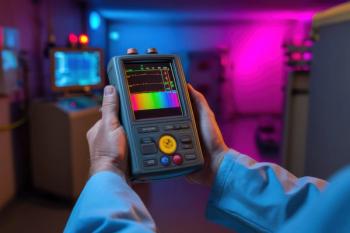
In an announcement on June 12, Rigaku Analytical Devices, which is a division of Rigaku Holdings Corporation headquartered in Akishima, Tokyo, announced the launch of its Icon series of 1064-nm Raman analyzers, its fourth-generation of the instrument.

Researchers from Ca’ Foscari University of Venice and the University of Padua have uncovered the earliest direct evidence of Upper Palaeolithic humans deliberately processing the non-edible plant Isatis tinctoria, revealing complex behaviors involving medicinal or dye-related plant use over 32,000 years ago.

A Texas A&M AgriLife Research study published in Rangelands found that region-specific calibration significantly improves the accuracy of FNIRS-based nutritional monitoring for beef cattle grazing the Edwards Plateau.

Top articles published this week include an interview about aromatic–metal interactions, a tutorial article about the recent advancements in tip-enhanced Raman spectroscopy (TERS), and a news article about using shortwave and near-infrared (SWIR/NIR) spectral imaging in cultural heritage applications.

A new study demonstrates how handheld near-infrared spectroscopy can be a powerful, accurate tool to distinguish real cashmere from wool.